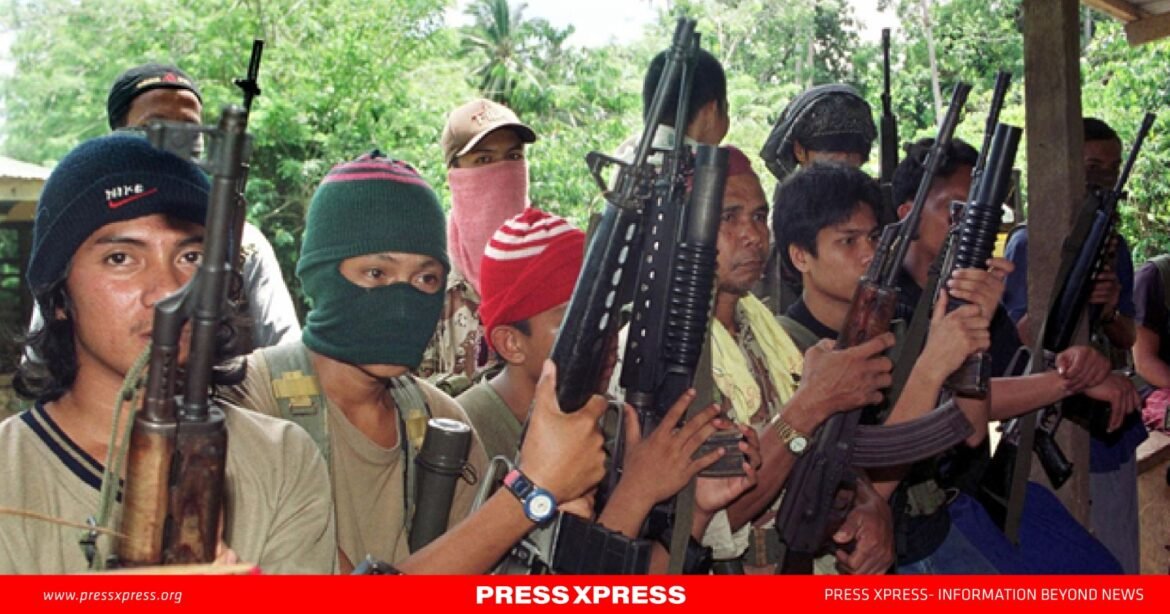Terrorism continues to plague South Asia, with the region now being recognized as one of the worst affected by extremist violence, according to the latest Global Terrorism Index (GTI) 2024. While the West has seen a decline in terrorist attacks, the South Asian nations of Afghanistan, Pakistan, India, Bangladesh, and Sri Lanka have experienced a persistent rise in the activities of non-state actors, including globally recognized terrorist organizations like ISIS and al-Qaeda.

These actors, along with regional extremist groups, contribute significantly to the instability of the region, creating a complex security situation that demands attention.
The Evolving Threat of Non-State Actors
Across South Asia, non-state actors have adapted their strategies to changing political and social landscapes. Groups like ISIS and al-Qaeda have increasingly turned to local affiliates and proxies to further their agendas, allowing them to maintain a foothold in the region despite international counterterrorism efforts. The influence of non-state actors is not limited to armed attacks; they also play a role in organized crime, using illicit activities to fund their operations, for instance, terrorist organizations in South Asia often rely on drug trafficking, arms smuggling, and even human trafficking as sources of revenue.
Recruitment Patterns: Targeting the Youth
But it is always an interesting space to examine how these Islamist outfits attract youths? Islamist groups in South Asia have developed sophisticated strategies to recruit youth from both English-medium schools and Madrasas, exploiting socio-economic and political frustrations. This recruitment, aimed at creating a new generation of radicals, reflects a blend of religious indoctrination and global jihadist narratives.
Recruitment in English-Medium Schools
Islamist recruiters increasingly target students from English-medium schools, typically from wealthier, educated backgrounds. A notable example is the 2016 Holey Artisan Bakery attack in Bangladesh, where several attackers were from prestigious schools and affluent families. These students are often radicalized online through social media platforms like Facebook, Telegram, and WhatsApp, where extremists present global Muslim struggles—such as in Palestine and Myanmar—as moral crises that demand action. Groups like Ansar al-Islam have successfully used these platforms to appeal to socially conscious and disillusioned youth.
Recruiters use sophisticated rhetoric, initially focusing on issues like social justice and Western imperialism, before introducing jihadist ideology. For instance, Nibras Islam, a perpetrator of the Holey Artisan attack, was radicalized through online discussions that framed global Muslim oppression as a moral obligation to join jihad.
Role of Madrasas in Recruitment
Madrasas remain central to extremist recruitment, especially among economically disadvantaged youths. In Pakistan, Madrasas linked to the Tehreek-e-Taliban Pakistan (TTP) and Jaish-e-Mohammed (JeM) provide free religious education, but also promote a rigid interpretation of Islam that glorifies jihad. According to the Pakistan Institute for Peace Studies (PIPS), around 20% of Madrasa students are exposed to hardline ideologies.
In Bangladesh, groups like Jamaat-ul-Mujahideen Bangladesh (JMB) and Hefazat-e-Islam recruit from religious schools, often framing their jihadist ideology as a response to religious persecution and oppression.
Economic Instability: A Catalyst for Terrorism?
The GTI report highlights a critical point: countries with weak state capabilities are more vulnerable to terrorism. In South Asia, economic instability has exacerbated the problem. Pakistan’s crumbling economy, for example, creates fertile ground for extremism, as disenfranchised populations are more susceptible to radicalization. Afghanistan’s struggling economy under Taliban rule similarly offers a breeding ground for terrorist recruitment.
The economic impact of violence in the region is staggering. According to the Global Peace Index 2023, the cost of violence in South Asia was estimated at $1,395 per capita, underscoring the direct link between economic hardships and the rise of terrorism. Addressing these economic issues will be crucial if the region is to reduce the influence of non-state actors and create lasting peace.
Addressing the Threat
The presence of non-state actors and terrorist organizations in South Asia presents a multidimensional threat to the region’s security and stability. From Pakistan’s border regions to Bangladesh’s urban centers, extremist groups continue to exploit political and economic vulnerabilities. While counterterrorism efforts have shown some success, particularly in India and Sri Lanka, the overall picture remains grim.
Cooperation between South Asian nations is essential to combating the cross-border nature of terrorism. More importantly, addressing the root causes—such as economic instability, weak governance, and social disenfranchisement—will be critical in reducing the influence of non-state actors in the region. The road ahead is challenging, but understanding the evolving nature of terrorism in South Asia is the first step toward lasting peace.


